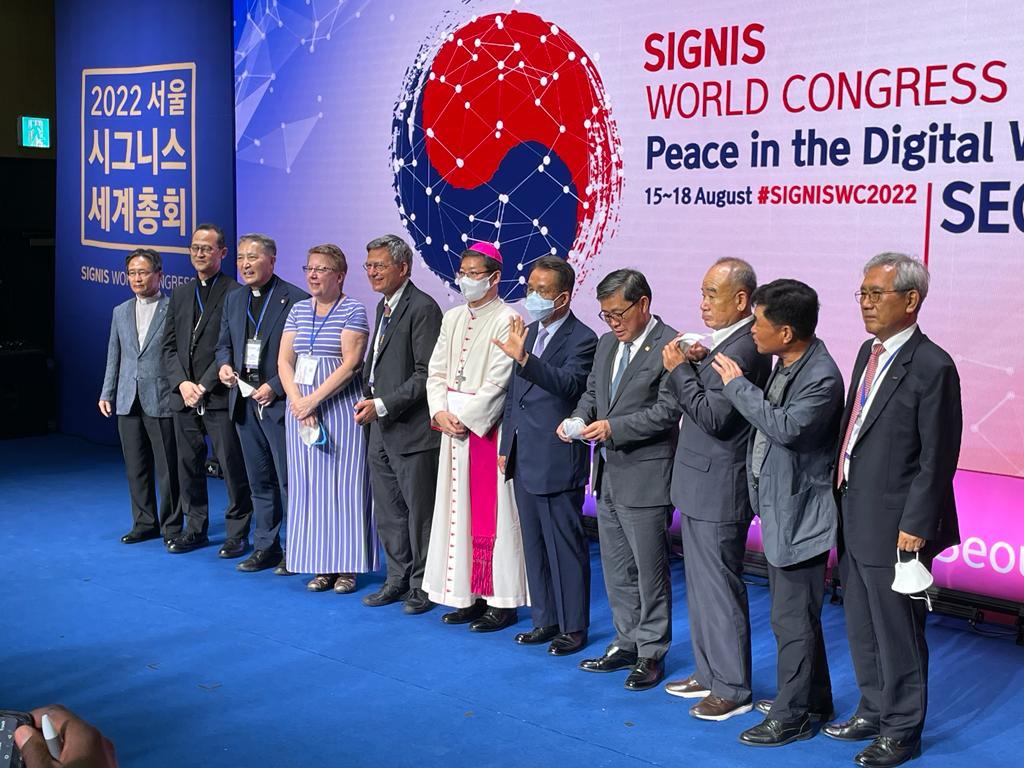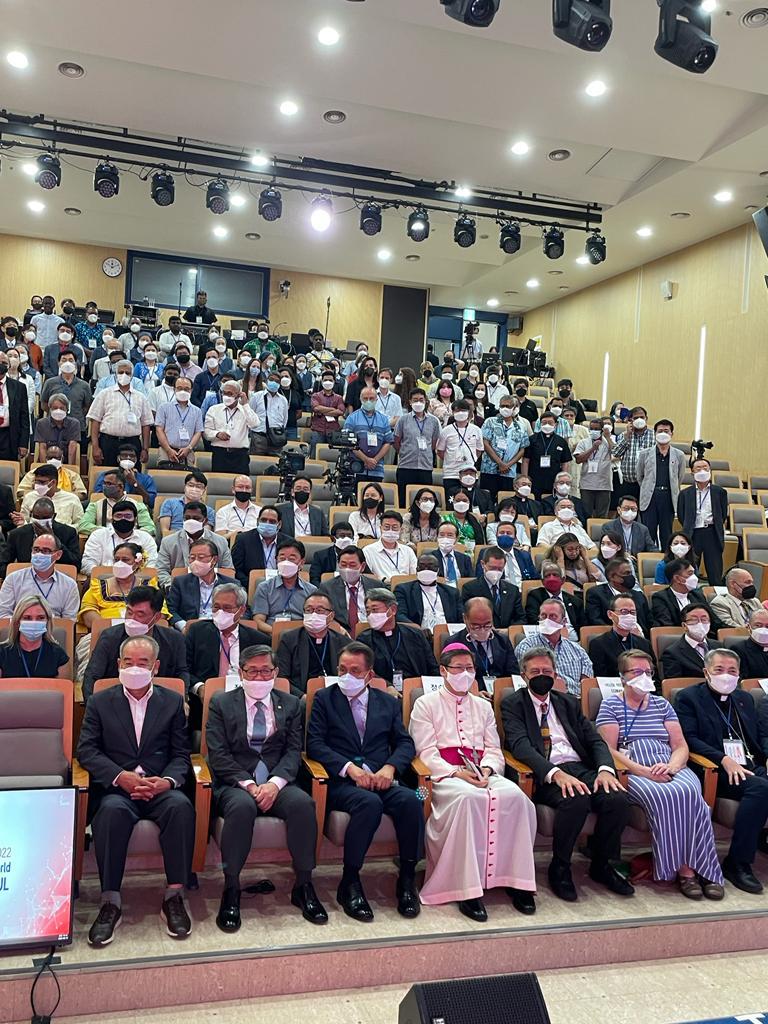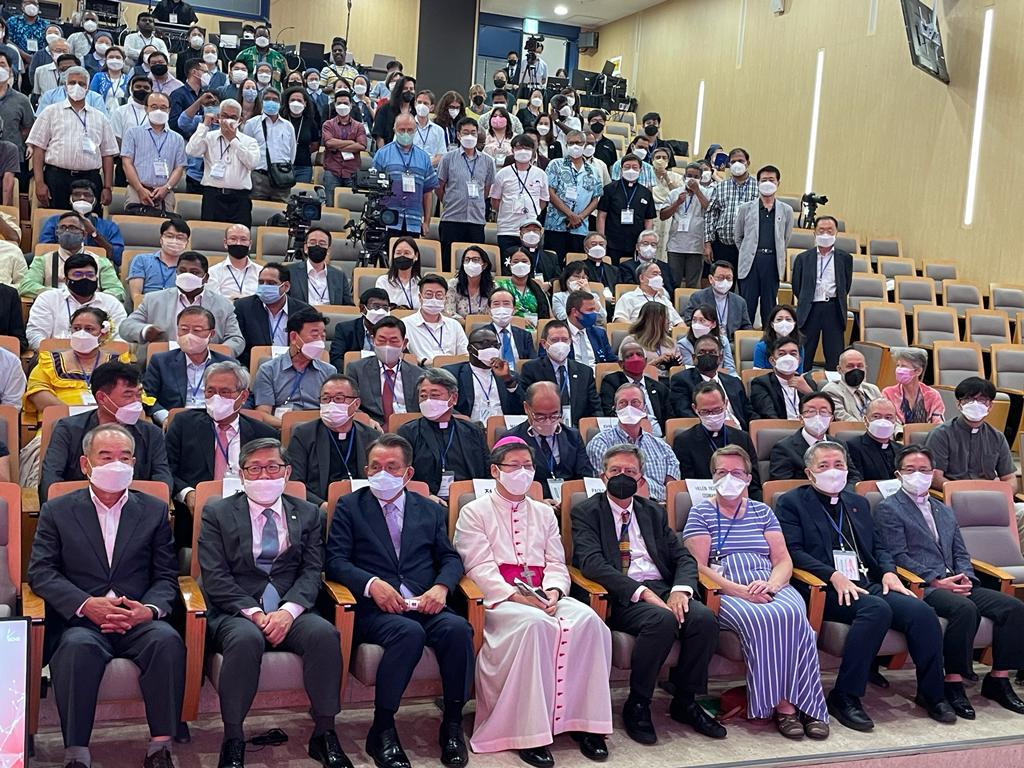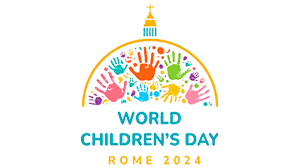SIGNIS: World Congress Resolves to Journey Together, Connected, in the Digital World

SIGNIS Congress
Andrew Kaufa smm
At the end of the 6th SIGNIS World Congress which kicked off on August 14, 2022 at the Sodang University in Seoul, Korea, under the theme ‘Peace in the Digital World’, two facts dominated the conversation: firstly, the apparent contradiction between social networking and loneliness as experienced in the digital ; secondly, the shift of roles from the older generation imparting to the youth their experiential knowledge about the pros and cons intrinsic in traditional and social media to the youth persuasively sharing their positive experiences about the power of digital media literacy and so urging the digital natives to overcome their fears about media technologies in the digital world.
A people living on the edge
Addressing members of the Association of World Catholic Communicators (SIGNIS) gathered in Sogang University’s Gonzaga Hall from thirty-four countries, the Prefect for the Dicastery of Communications at the Vatican, Dr Paolo Ruffini, began by appreciating human artistic and scientific creativity as divine characteristic. He then highlighted the polarity between hyper-connectivity of social networkers and the loneliness that most of the also experience. In fact, even in a family, it has become common that parents and children who seem to be together, they are simply individuals living under one roof or in a sitting room, each one of them active on the internet, and ’WhatsApp but distanced from those next to them.
“We are hyper-connected and also alone. Everyone, in the end, closed in on themselves.
The problem is precisely here: when there is no longer communication but only connection, when there is no longer reality but a substitute for it. That’s when we need to question ourselves, to do a personal and collective examination of conscience; and answer some questions, with an open mind,” said Dr Ruffini.
And where is the answer to this problem? According to Dr Ruffini, “The only way to respond to the challenge of technology is not to think of it as an idol, but also not to demonize it. Not to believe that it has the task of redeeming humanity, but also, not to think that its perdition depends on it. I think these two extremes delineate the field of our challenge. And it is the field of personal responsibility.”
On the Prefect of the Dicastery for Communication imagined the future of what the society is experiencing today, comparing it to the failed project of the construction of the Tower of Babel where the lack of genuine communication and interpersonal relationships became a serious challenge.
Thus, “Without seeking the ‘beyond’, our communication will simply be another Tower of Babel, we must offer the world a different communication system. This is where SIGNIS can come in. This is our time, let us not waste it,” Dr Ruffini concluded.
We need to discern spiritual meaning in dysconnectivity

Building on the above, several presenters at the 6th SIGNIS Congress which took place at Sogang University’s Gonzaga Hall highlighted various aspects involved in the hyperconnected digital technological world today. Of particular interest regarding the disconnectedness and loneliness that some people are experiencing despite this hyper-connectivity was to seek the spiritual meaning of what is happening in the digital world. This was acknowledged as indeed a pastoral challenge of the modern time which is manifesting itself in all aspects of human life – social, political, economic, human and ecological.
On this note, Fr Anthony Le Du SVD argued from the theological perspective that what many people are experiencing despite this hyper-connectivity is lack of meaningful human relationships: the truth is comprised in favour of propaganda; people are preferring to depend more on artificial intelligence than human creativity. In fact, there is more and more an appreciation of nature sceneries through photographs than physically going out to enjoy nature in the real world.
On her part, however, Dr Natasha Govekar urged the participants not to despair but rather gain new perspectives that underscore hope. This is so precisely because while it must be acknowledged that the digital space has paused some fundamental questions at relational level, it is still possible to exist on the Internet and be human.
In fact, “the problem is the human expectation assigned to technologies. Here we need to discover the true nature of the human beings,” she insists adding, “As Christians, communion is our DNA which overcomes our technological interconnectedness,” he said to underscore the need for every Christian to enter into the mystery of humanity as illuminated by Jesus the second Adam, who empowers every baptized person to overcome the worldly technological vision and embrace the divine human vision which is the final human destiny.” Dr Natasha added.
In this way, she concurs with Le Du that there is need to find a spiritual meaning in what human beings are experiencing today and continues to say, “Our embodiment matters but it is the human pilgrimage that matters most.”
The truth is what people needed most
Going by the theme which invited the participants to reflect on how to build peace in the digital world, the conflict situation in Ukraine and Myanmar could not be avoided as they called upon SIGNIS members to reflect on the role of a Catholic journalist in a media ecology where the media are often characterized by fake news and misinformation. At the end, journalism for peace entails exposing the propaganda, disseminating factual news and alerting the news consumers and international opinion on any misinformation and fake news by giving testimony-based stories.
Commenting on this observation Cedric Adrian, a member of Reporters without Borders, argued: “There is no democracy without journalism.”
 As such, what is important is for SIGNIS members to highlight the need to target fake news and misinformation which have become characteristic of the social media. For Adrian, it is important to underscore ethical practice of journalism and to be ready as a media practitioner to take risks for the good of the public. This, according to Paolo Granata, a professor of Media Ethics at Toronto University in Canada, invites the journalist to look at the world with a futuristic perspective and make a difference. He is convinced that human beings are capable of detoxing themselves from the fake news syndrome and changing the media content.
As such, what is important is for SIGNIS members to highlight the need to target fake news and misinformation which have become characteristic of the social media. For Adrian, it is important to underscore ethical practice of journalism and to be ready as a media practitioner to take risks for the good of the public. This, according to Paolo Granata, a professor of Media Ethics at Toronto University in Canada, invites the journalist to look at the world with a futuristic perspective and make a difference. He is convinced that human beings are capable of detoxing themselves from the fake news syndrome and changing the media content.
In the same vein, Jack Barton, underscored the role of journalism in contexts of conflict and war. He insisted that despite these challenges associated with these media technologies, the digital platforms are a positive thing. However, it must be noted that in this upsurge of fake news and misinformation the modern person is starved of knowledge and authentic information.
“What is at stake is unresearched, unverified stories,” he said to emphasize the need for the journalist to do fact-checking adding, “We are now seeing a shift on BBC from merely breaking news to reality check.” This implies that professional journalism requires the SIGNIS member to play their peace building role by looking critically at the news – the headline, news outlet, source, publish date, the author and the slant in the story.
Futuristic Perspective
In the message of Pope Francis to the SIGNIS World Congress of 2022, dated dated July 15, 2022, the Holy Father calls upon the Catholic communicators to pay attention to this current digital and social media ecology; to look at these outbreaks of violence and aggression in our world. The world is experiencing division and disconnection at various levels: what role can the Catholic media play?
The 8th Commandment says, “Though shall not bear false witness against your neighbor (Exodus 20:15).” This is an obligation to every human being to embrace authenticity and truthfulness as professional values. In other words, it can be said that the 6th SIGNIS World Congress has concluded with the conviction that it is by adhering to the ethical principles that a Catholic professional communicator can play a crucial role. Only in this way can the SIGNIS members play a midwifery role of bringing forth a new media culture characterized by the quest for peace building amidst this hyper-connectivity that has been ushered in by the digital social media.


